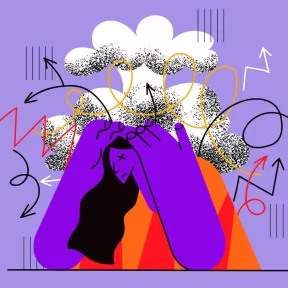How the Language of Therapy Is Changing

Key points Therapy may be here to stay, but our language is changing about how we approach it. In the empowerment of the word “client,” we may have lost essential tenets of the therapy process. Mental health issues, in general, are rife with labels, classifications, and pop-psychology definitions. Adding to the mix are divergent theoretical […]
Ethical Considerations for Patients With Eating Disorders

From the mid-1990s until 2014, I founded and was the Executive Director of Cedar Associates, an outpatient treatment center for eating disorders with two locations in Westchester County, New York. We were a group of qualified eating disorder specialists joined together for a common cause—to provide coordinated and expert care to our patients. One ethical issue we […]
When Social Media Is Used to Harm

Setting boundaries in a treatment setting is no different than the boundaries we set in relationships; after all, the patient and therapist are in a relationship. Consider your current relationships either with a partner or close friend. Imagine, or perhaps remember, when that person did something to repeatedly break the rules of what you agreed upon. Affairs […]
Relational Origins of Eating Disorders

Key points Holidays can trigger vulnerable and negative emotions for all people, especially those with eating disorders. Relationship problems can contribute to eating disorders. Empathy, compassion, and not taking the bait are tools for the family members of those struggling with an eating disorder. Holidays often trigger an increase in eating disorder symptoms. In addition, family members […]
Celebrities with Eating Disorders
The media draws in people vulnerable to scrutiny and rejection as well. Often the need to be perfect Is a way to try and cushion oneself from feeling vulnerable. For Eating Disorder sufferers, seeking perfection and the lure of celebrity status is an attempt to feel stronger but it often backfires because the industry is so harsh […]
When Complex Trauma & Severe Character Pathology Meet Part 2

Key points Complex childhood trauma with severe personality disorders require many years of treatment, often utilizing various approaches. A re-enactment of the childhood trauma occurs in the therapeutic dyad. Relational and other psychodynamic therapists believe healing is possible when certain conditions are met. Empathy, and its precursor compassion, are qualities, not skills. They cannot be taught, […]
When Complex Trauma and Severe Character Pathology Meet

Key points Sadistic impulses present in all human beings are held in check by most people. Complex trauma affects and often damages relationships at every level throughout life. Sadistic responses by patients with histories of persistent childhood trauma repeat cycle of abuse. Human beings absorb trauma. Familial or interpersonal trauma, perpetrated over a protracted period […]
Anxiety Is a Mask and a Symptom, Not Just an Evolutionary Signal

Key points Anxiety is more than an evolutionary response to uncertainty and a call to action. Eating disorders and anxiety are adaptations, masks, and gatekeepers: both are symptoms. Anxiety represents the expression of individuals’ attempts to cope with complex psychological states as well as hidden and repressed emotions. Anxiety disorders are on the rise. The impact of […]
Eating Disorder Symptoms and Shame

Patients with eating disorders experience many conflicting and competing emotions. Among them is shame. Often, they feel ashamed of their symptoms, their needs, and their wants in life and feel ashamed of their physical desires. The causes of eating disorders are complex and each person who suffers is unique. Symptoms emerge out of interaction among biological, […]
Crossing the Divide: Eating Disorder in Full Recovery

The moment of knowing that the time is right for change; the decision to stop being symptomatic is, for some individuals, a gradual process of non-linear progression. For others, it is the one quick moment of recognition that, “I am done,” or “I have had enough.” Whatever the fast trajectory or protracted process, those who […]
